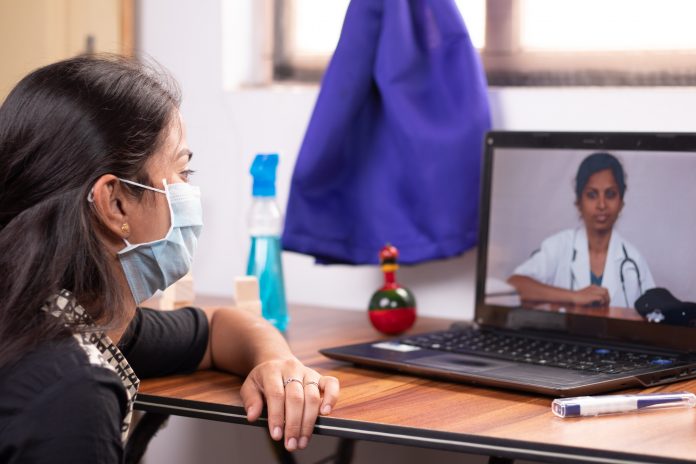Jade Mansfield at Delight Counselling, explores why online counselling has become increasingly popular since the COVID-19 pandemic
The COVID-19 outbreak meant that many of those seeking help were unable to meet their therapists and counsellors. The need for access to online mental health therapy was needed more than ever. Online counselling was already being used, but it’s popularity spiked when the demand, of course, increased.
Searches for ‘counselling online’ increased by 124% since the outbreak where people were unable to access face-to-face counselling. However, although interest in online counselling has only just majorly increased, it’s effectiveness was previously studied and it was proven to be just as good, if not better than face-to-face therapy.
According to a study conducted by the University of Zurich, online counselling sessions have become increasingly popular through means such as instant messaging, emails and video chats.
As part of their study, 6 therapists were asked to treat 62 patients who were suffering from moderate depression. One group was treated face-to-face and the other group were treated online, both receiving 8 sessions of therapy. Professor Andreas Maercker revealed that 53% of those treated online were no longer diagnosed with depression, compared to 50% of those who had face-to-face therapy. In addition to this, the follow-up sessions revealed that the rate of recovery online were higher than the patients who saw the counsellors in person. At the end of the study, 57% of patients who completed the online treatment were free of depression, compared to 42% of those who had traditional, face-to-face therapy.
In this case, online counselling was said to have been more successful due to the paper trail that is generated. This meant that clients had the ability to re-read the interaction with their therapist. This kept it fresh in their mind when compared to those who forgot the advice that was given face-to-face. Ultimately, the correspondence was used as a useful resource between sessions.
Technology will provide practitioners and clients with new possibilities
The use of technology in counselling and psychotherapy is both challenged and exciting for practitioners. Traditional methods in health sectors are especially hard for some to move away from. Embracing technology and being able to give the client more choice on how they receive mental health assistance is undeniably beneficial.
It can also remove barriers for anyone wanting to seek help, but are afraid of people finding out. There can be a stigma against mental health, many individuals, especially youth have taken to online therapy as a way of seeking help for their mental health. This method allows them to avoid the stigma and to find comfort in knowing they are avoiding judgement.
Embracing this technology also helps them reach more people who need help as they are not bound by physical location. Technology offers flexibility, more time and more available slots in most cases.
There is one main advantage that benefits both the client and practitioner, neither are restricted by the location of each other. A person seeking online help can speak to anyone they want, including those overseas; as long as there wasn’t a language barrier and time difference that caused issues. This means that there are now endless options for those seeking help. This is especially great for those who could not get in with a counsellor near them, there will always be someone online that will help.
This is not to say that all therapists will be expected to fully turn to online counselling, simply that online counselling will become a big part of the mental health service future. While some clients may have adapted well to online therapy, it will not be for everyone. Offering clients more means to attain mental health help is key to the success of both clients and the mental health sector.












